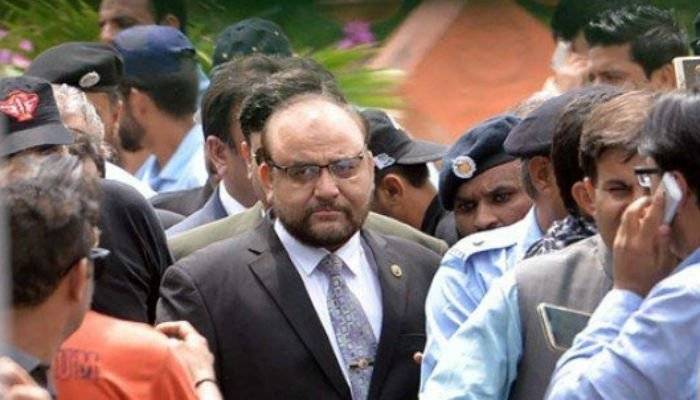Nawaz’s legal counsel cross-examines Wajid Zia in Al-Azizia reference
Shares

ISLAMABAD: Former prime minister Nawaz Sharif’s legal counsel, Khawaja Harris, started Thursday morning the cross-examination of prosecution’s star witness Wajid Zia in the Al-Azizia reference against Sharif family.
Zia, an additional director at the Federal Investigation Agency, headed the Panama case joint investigation team (JIT) which probed the Sharif family’s assets last year.
Nawaz and his family members are facing three corruption references in the accountability court — Avenfield Properties, Al-Azizia Steel Mills and Flagship Investments — in which they are accused of money laundering, tax evasion and hiding offshore assets.
As per the bank statement, Nawaz’s son Hussain Nawaz sent him an amount worth US$1.1 million as a ‘gift’ from July 5, 2010, to June 30, 2011. “It is true that the dollars sent to Nawaz were a gift from his son,” Zia remarked.
Nawaz should have declared the amount in the wealth statement for 2010-2011, Zia added.
The National Accountability Bureau prosecutor Wasiq Malik remarked that there is no need to compare the bank statement with tax record, adding “our case is different”.
Zia, who is appearing before the court of accountability judge Muhammad Bashir, has already recorded his statement in both Avenfield and Al-Azizia references against the Sharif family.
The corruption cases
The National Accountability Bureau has in total filed three references against the Sharif family in light of the Supreme Court's orders in the Panama Papers case verdict of July 28.
The corruption references, filed against the Sharifs, pertain to the Al-Azizia Steel Mills and Hill Metal Establishment, offshore companies including Flagship Investment Ltd, and Avenfield properties of London.
Nawaz and sons Hussain and Hasan are accused in all three references whereas his daughter Maryam and son-in-law Safdar are accused in the Avenfield reference only.
The court originally had a deadline of six months which ended in mid-March but was extended for two months after the judge requested the apex court.
Later, on May 9, the trial court's second plea for a deadline extension was approved by the Supreme Court which gave a month to both sides to finish the corruption cases.
APP
